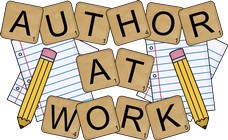John Veverka & Associates
Main menu:
- Home Page
- Our Range of Services
- Interpretive Coaching
- Interpretive Planning
- Interpretive Plan Outline
- Interpretive Training
- John Veverka Resume
- NEW Advanced Interp. Text Book
- InterpNEWS
- Library
- JVA NEWS, Courses and Updates
- Certificates
- Planning/Design of Interpretive Panels
- Interpretive Writing
- Interpretive Writing Course
- Interpretive Trails Course
- Interpretive Panels Course
- Introduction to Heritage Interpretation Course
- Interpretive Planning & Design of Marketing Brochures Course
- Training for Interp. Trainers
- Interpretive Exhibits Course
- Interpretive Master Planning Course
- Interpretive Planning for Scenic Byways.
- Critiquing and Coaching Interpretive Staff
- Advanced Interpretive Planning
- Interpretive Training Center Course Catalogue
- Interp. for International Visitors course.
- Interpretive Exhibits Evaluation
- Interp. Center Feasibility Analysis Course.
- Interp. for Commercial Tour Providers
- Interpretive Researchers Guide for Visitor Studies
- Interp. Planning for Historic Homes
- Heritage Interpretation Training Center
- Interpretive Planning for Botanical Gardens
- An introduction to planning and presenting live interpretive programs and tours for Museum/Heritage Site Docents and Volunteers.
- Developing Marketing Plans for Heritage & Tourism Sites and Attractions
- Interpretation Book Store
- Heritage Interpretation Resource Center
- Interpretive Planning for Historic Farms
- Developing Successful Partnerships
- Developing Interpretive Outreach Programs
- Community Interpretation Planning
- Interpreting Gravestones and Historic Cemeteries
- Using Interpretation to Accomplish Management Objectives.
- An Interpreters Guide for Survival Economics.
- Innovative Strategies for Interpretive Media and Services Planning.
- A Curators Guide for Developing Gallery Tours.
- Advanced Interpretive Writing - Technical Publications
- Advanced Interpretive Services for Managers, Supervisors, Team Leaders and Sr. Staff.
- Advanced Interpretation for Chiefs of Interp. - Interpretive Managers - Regional Interp. Specialists
- Interpreting Critical Issues.
- Developing Commercial Interpretation for Resorts, Cruise Ships, Campgrounds and Tourism Attractions.
- Planning and developing a new commercial tour guiding business.
- Interpretive Evaluation, Visitor Studies and Site Assessment Center
- The Center for Interpretive Planning Advancement & Excellence.
- Developing Requests for Proposals (RFPs)
- Planning and Facilitating Focus Workshops
- Planning for Interpretive Experiences
- 40 Years a Heritage Interpreter
- Interpretive Techniques - The Rest of the Story Course
- Certified Professional Interpretive Planner Certificate
- Certified Professional Interpretive Program
- Certified Professional Interpretive Writer certificate program.
- Visitor motives for attending interpretive programs.
- Exhibit Rehab Course
- Developing Training Workbooks & Manuals
- Planning for Railroad Museums and Sites.
- Climate Change Interpretation Course.
- When there's nothing left but the story - interp. storytelling.
- Interpreting Legends Myths and Fables
- InterpSHARE - Seminars 2022
- Interpreting Invasive Species
- Interpretiing Edible Insects
- Interpretaive Planning for Climate Change
- HITC Climate Crisis Resource Center
- PUP Members Only
- Starting a new Interp Consulting Business
- Panels 4 Week Course
- Interpretive Writing - 4 Week Course
- Marketing - 4 Week Course
- Intro to Interpretation - 4 Week Course
- Interp Climate Change - 4 Week Course
- Exhibit Rehab 4-Week Course
- Level 1
- Johns Interpreters Blog
- John Interpreters Blog 2
Interpretive Writing - 4 Week Course
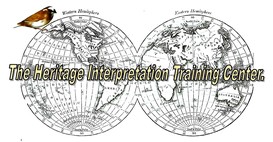
Heritage Interpretation Training Center
Introduction to Interpretive Writing - Four Week Course
Basics of real interpretive writing (Provoke, Relate, Reveal)
for developing copy for outdoor interpretive panels,
museum exhibits and self-guiding trails & tours writing projects.
28 February - 25 March 2022
Course Tuition $200.00

The 4-week interpretive writing course has been developed and will be mentored/coached by Prof. John Veverka - Director of the Heritage Interpretation Training Center and with 40 years of experience as an interpretive planning consultant and author.
Course participants will receive:
- HITC Interpretive Writing Guidebook
- The Interpretive Trails Book (writing copy for self-guiding media).
- Interpretive Writing Principles samples and handouts.
- Interpretive Writing and Graphic Standards.
- Time to work on your individual interpretive writing drafts with mentoring (coaching)
- Zoom weekly chats and coaching..
- A Certificate of Completion from the Heritage Interpretation Training Center
with two (2) CEU unit credits.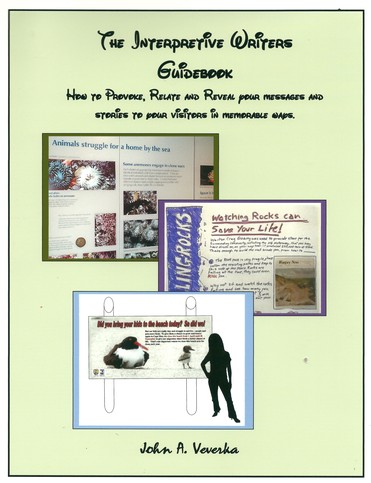
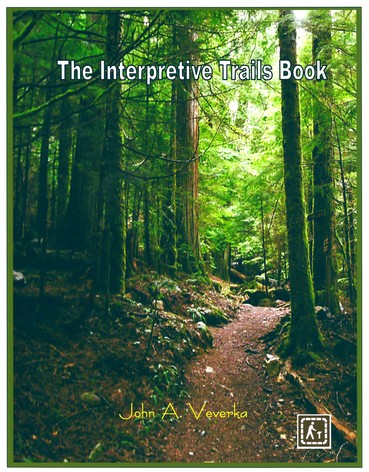
Prof. Veverka will offer weekly ZOOM meetings and discussions. You can also contact Prof. Veverka at any time via e-mail or SKYPE to address any personal project questions at jvainterp@aol.com.

JV teaching heritage interpretation courses at Univ. of Lithuania.
Due to providing adequate time for Prof. Veverka to provide mentor/coaching to participants working on their projects, this course will be limited to 10 participants.
Course Registration
- Contact Prof. Veverka to enroll in the course by e-mail (jvainterp@aol.com) or by
SKYPE if you have more questions. If you like, you can register one person for the course
but have a team working with you on a writing projects.
- Pay the course tuition via the course web site PayPal button at the bottom of the web site
page.
- Prof Veverka will send you by e-mail initial course text books and resource materials.
- We will have a course orientation meeting via ZOOM for participants on the 1st of Feb - time
to be decided based on participant time zones.
Course Weekly Content Structure
Week One - What make interpretive writing interpretive?
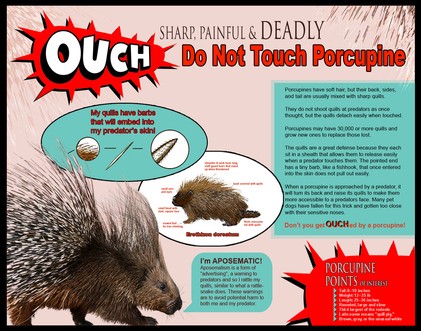
- Overview of the interpretive writing planning process.
* Objectives for copy to be successful written messaging.
* Interpretive Themes to connect your writing with site main theme.
* Who are the audiences the copy has to relate to?
- Structure of Provoke, Relate and Reveal in copy layout.
-Interpretive Writing scripting forms.
- Overview of active language, tangibles and intangibles in text writing.
- Writing practicums - let's get you interpreting via copy writing exercises.
- Weekly ZOOM discussions with course instructor.
Week Two - Interpretive writing for interpretive panels text (100 words).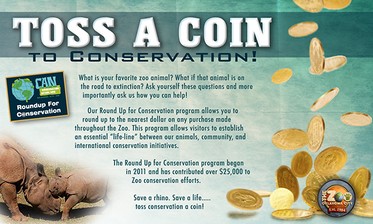
- Interpretive writing for panel text (100 words).
- Writing psychology - connecting to your audience.
- When is a word more than a word?
- Marriage between written text and graphics on panels.
- Considering writing/text physical design(s), colors, font and text styles.
- Interpretive writing practicum (or draft text for your panel project(s).
- Weekly ZOOM discussions with course instructor.
Week Three - Developing interpretive copy/scripting for museum exhibits.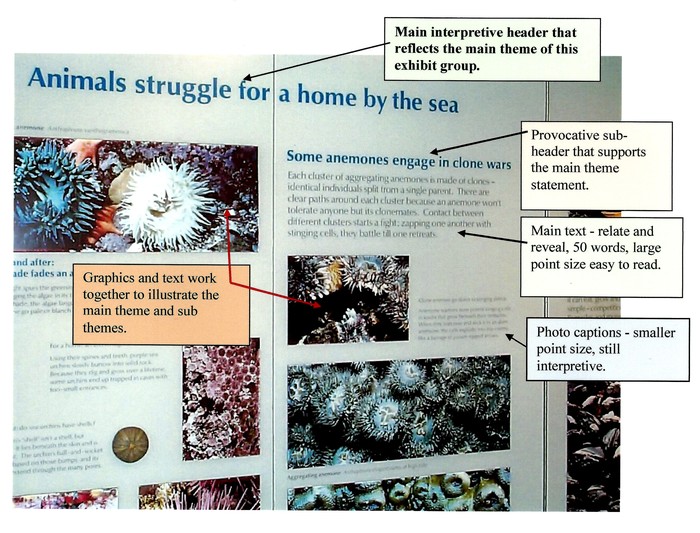
- What is an interpretive exhibit and its connection to storytelling?
- Writing to help accomplish exhibit (or exhibition) objectives (learn, feel, do).
- Interpretive writing that reveals intangible emotions in/for the reader.
- Interpretive copy structure (main interpretive header - support copy for main header, sub-theme
text blocks (with graphics), captions for photos or artifacts.
- A word about pre-test evaluations (writing for exhibit use directions, vocabulary and relating
tangibles and intangibles copy to the reader).
- Weekly Zoom meeting and chat.
Week Four - Writing copy (and storytelling) for self-guiding trails and tours.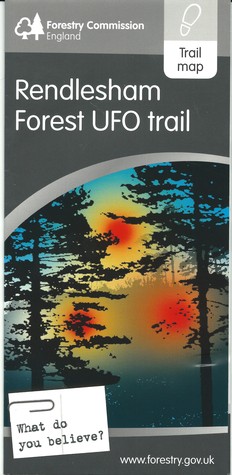
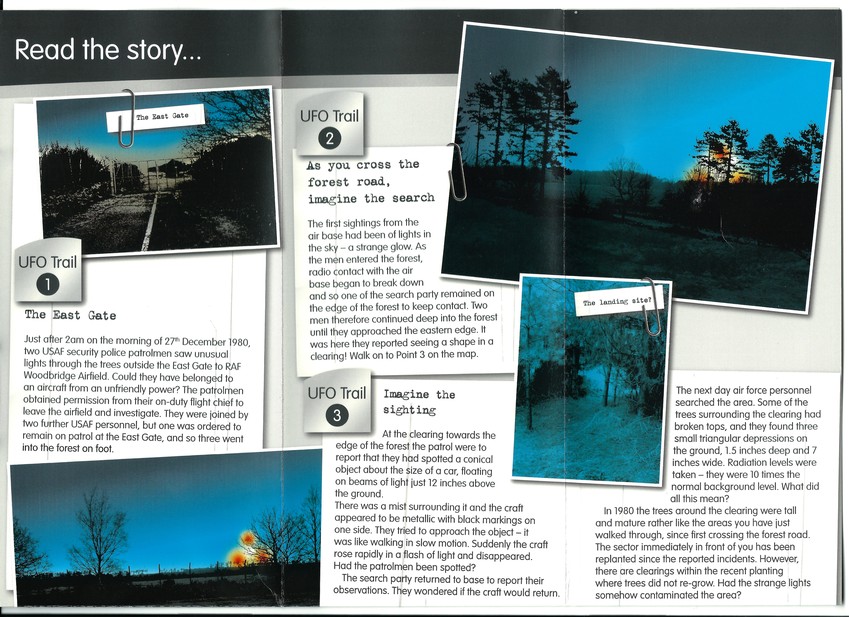
- Overview of Interpretive trail and tour planning
-Inventory of interpretive tour stop opportunities.
-Based on tour route resources develop your interpretive theme and objectives.
-Select potential interpretive trail/tour stops to illustrate your theme and help
Accomplish your tour objectives.
- Develop your SGT trail or tour route storyline for each trail/tour stop.
- Write your draft for your SGT trail or tour introduction for the reader (theme, safety issues, any rules, etc.)
- Draft your interpretive text for each trail//tour route stop.
- Draft your interpretive summary for the SGT experience.
- Review that each trail or tour stop interpretation illustrated the theme and help to accomplish the interpretive objectives the copy was to accomplish.
- Assignment - develop draft interpretive text plan (theme, objectives, headers and copy for each SGT stop, write copy at end of each stop interpretation for transition text for next stop.
- Developing your draft SGT guide pre-test evaluation strategy
- Final ZOOM presentation of your interpretive writing project for course participants.
Are you ready to write the right way? To Provoke, Relate and Reveal you messages and interpretation? Then this short course is for you! Click on the BuyNow course tuition button brloe and let's get you writing!
Let me know if you have any questions.
Prof. John Veverka
jvainterp@aol.com
